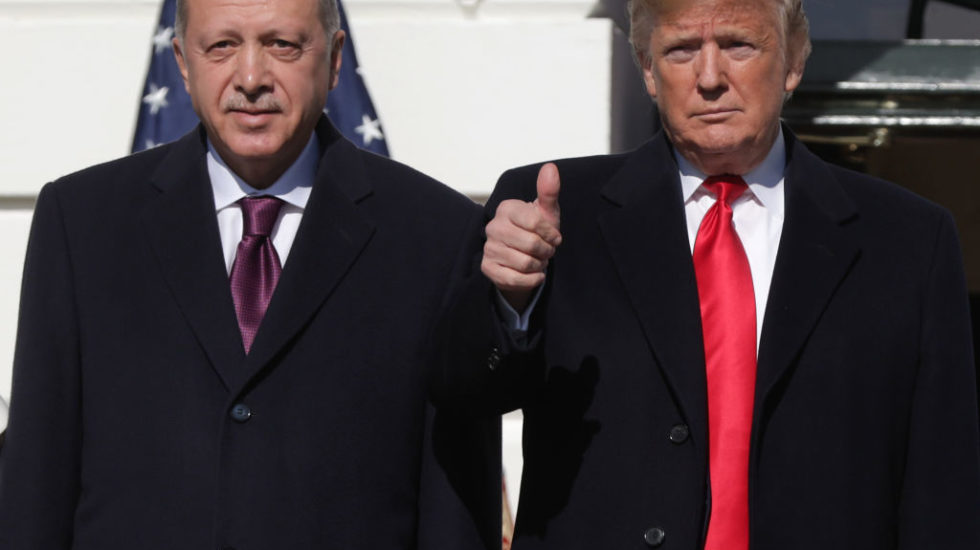For Democrats seeking to throw President Trump out of office in the Senate impeachment trial, John Bolton’s book is the gift that keeps on giving.
It’s not technically a book yet, of course, but an unpublished manuscript by the former national security adviser, titled “The Room Where It Happened” and obtained by the New York Times, which has been digging into its authoritative behind-the-scenes look at the Trump White House.
The latest revelations include the president’s unconventional (one observer calls them “highly abnormal”) dealings with Turkey.
“It was late 2018, and President Recep Tayyip Erdogan of Turkey was on the phone with an unusual request for President Trump: Could he intervene with top members of his cabinet to curb or even shut down a criminal investigation into Halkbank, one of Turkey’s largest state-owned banks?” the Times reports.
Halkbank was accused of violating U.S. sanctions against Iran, and along with that and other phone calls, Erdogan’s government “hired a lobbying firm run by a friend of and fund-raiser for Mr. Trump to press his case with the White House and State Department,” the Times says.
Former foreign policy officials, some of whom served in Republican administrations, told the Times that Trump has played an unusual role in U.S. criminal and sanctions cases involving foreign governments, including both Turkey and China, and their authoritarian leaders.
“What I know about his intervention in the Halkbank case is highly abnormal and quite worrying, actually,” said Philip Zelikow, a University of Virginia history professor who served in the George W. Bush administration.
Zelikow suggested that Trump puts his own “private, commercial interests above those of the United States” — a now-familiar accusation against this president.
Also familiar: the involvement of Trump’s personal lawyer, Rudy Giuliani.
In 2017, Trump asked Giuliani to “help secure the release of a gold trader at the center of Halkbank’s sanctions-evasion efforts” for funneling more than $10 billion “in gold and cash to Iran,” defying U.S. sanctions aimed at curbing Iran’s nuclear program.
“Turkey also wanted the trader released … so that he would not testify against top bank officials or implicate members of Mr. Erdogan’s family or Mr. Erdogan himself,” the Times says.
Ultimately the Turkish gold trader was not released until he agreed to testify against a Halkbank executive — but Erdogan’s efforts to persuade Trump to intervene in additional action against the bank went on, including an appeal by the former project manager of Trump Towers Istanbul.
“Only after Turkey invaded Syria in early October [2019] did the Justice Department move to indict the bank,” the Times says.
As for China: in 2016 the U.S. found the Chinese telecommunications giant ZTE guilty of violating sanctions against Iran and North Korea. Two years later the Trump administration sought to ban ZTE from buying American technology.
“But Mr. Trump suddenly had a change of heart, essentially pardoning the company in exchange for a $1 billion fine and promises to replace its senior leadership and allow American compliance monitors,” the Times says, adding that this followed “a direct plea” to Trump from China’s president, Xi Jinping.
Xi and Trump were then in heated trade talks, and Chinese officials “made it clear that they considered lifting ZTE’s penalty a condition for reaching a trade deal [and that] American companies operating in China could face further retaliation.”
“This is not the norm in Washington,” former Obama Treasury adviser Elizabeth Rosenberg told the Times, adding that Trump “is making up sanctions policy on his own, and influencing the course of policy in a way that undermines United States priorities and has shocked United States allies.”



